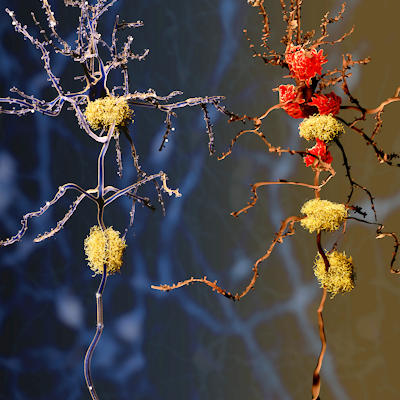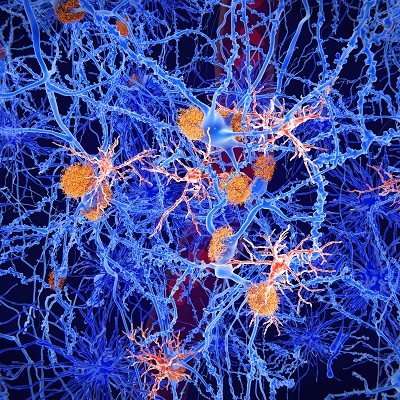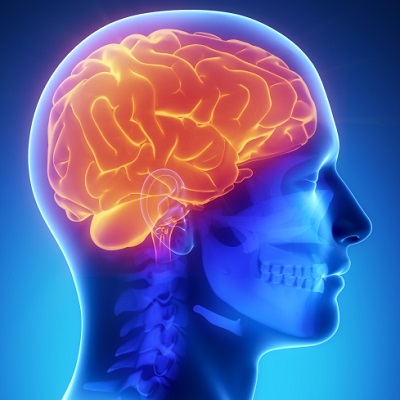October 18, 2022 -- University of Virginia (UVA) researchers have discovered a molecule in the brain responsible for coordinating the brain's cleansing of detritus associated with Alzheimer's disease and multiple sclerosis (MS).
The research, published on October 17 in the journal Cell, could help boost the body's ability to fight neurological diseases. The molecule, spleen tyrosine kinase, directs the activity of microglia -- immune cells that serve as brain cleaners. Microglia are vital to removing plaque buildup associated with Alzheimer's, as well as preventing debris buildup that causes MS.
These and other neurodegenerative diseases may be caused by the brain's inability to cleanse itself of toxic buildup. UVA's discovery offers insights into how this cleansing process occurs -- and the devastating consequences when it doesn't.
The researchers found that a lack of spleen tyrosine kinase triggered plaque buildup in the brains of mice, causing memory loss similar to humans with Alzheimer's. They were able to reduce plaque buildup by activating the kinase to boost microglial activity.
Similarly, a lack of spleen tyrosine kinase in mice models with MS led to the buildup of damaged myelin, a protective nerve cell coating. When myelin is damaged, the cells transmit messages improperly, causing MS symptoms including impaired mobility and muscle spasms.
The researchers contend that spleen tyrosine kinase plays a crucial role in myelin debris removal. Hence, targeting the molecule to stimulate the brain's cleansing activity could help treat Alzheimer's, MS, and a "spectrum" of neurodegenerative diseases.
UVA neuroscientist and co-author John Lukens, PhD, said the new discovery "provides a potent strategy to eliminate the toxic culprits that cause memory loss and impaired motor control in neurodegenerative disease."
Copyright © 2022 scienceboard.net










